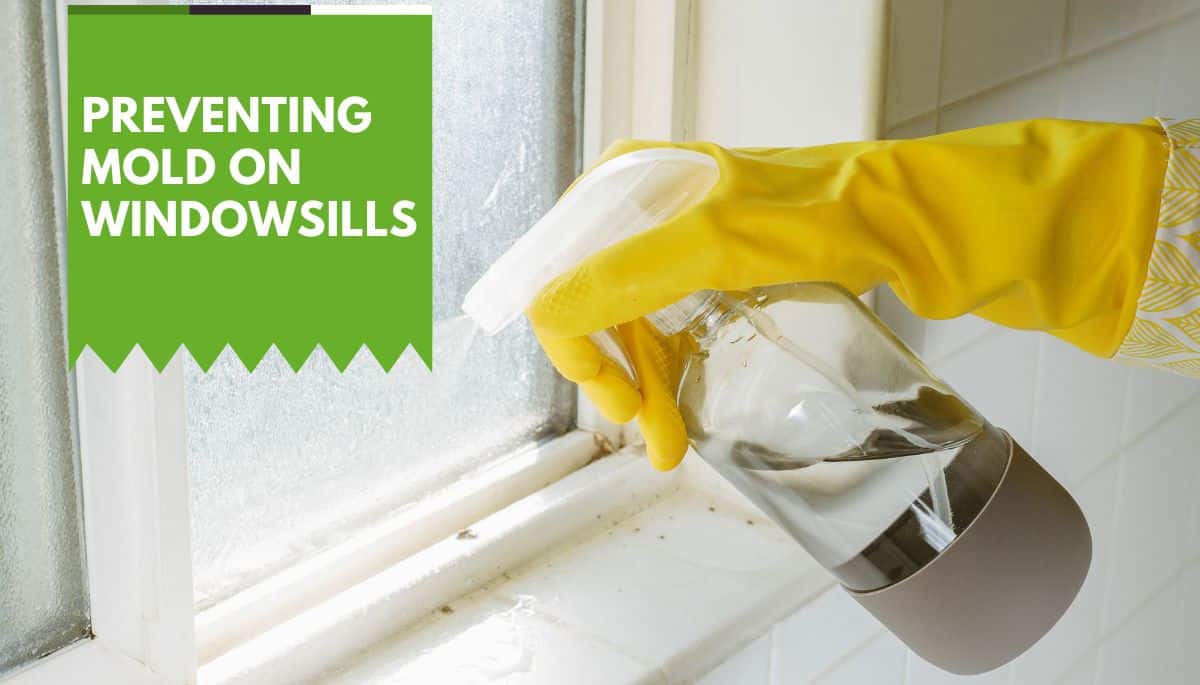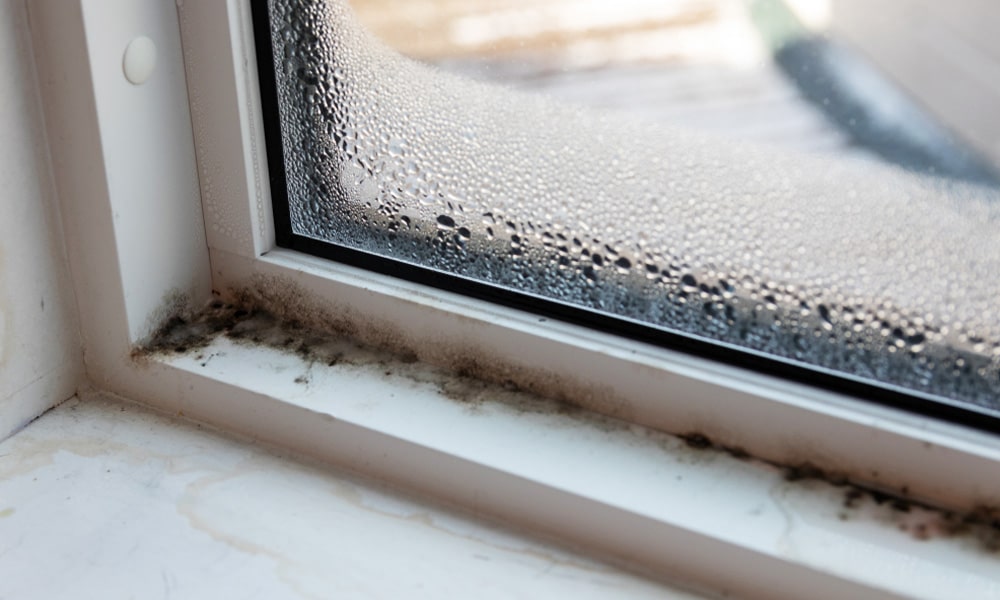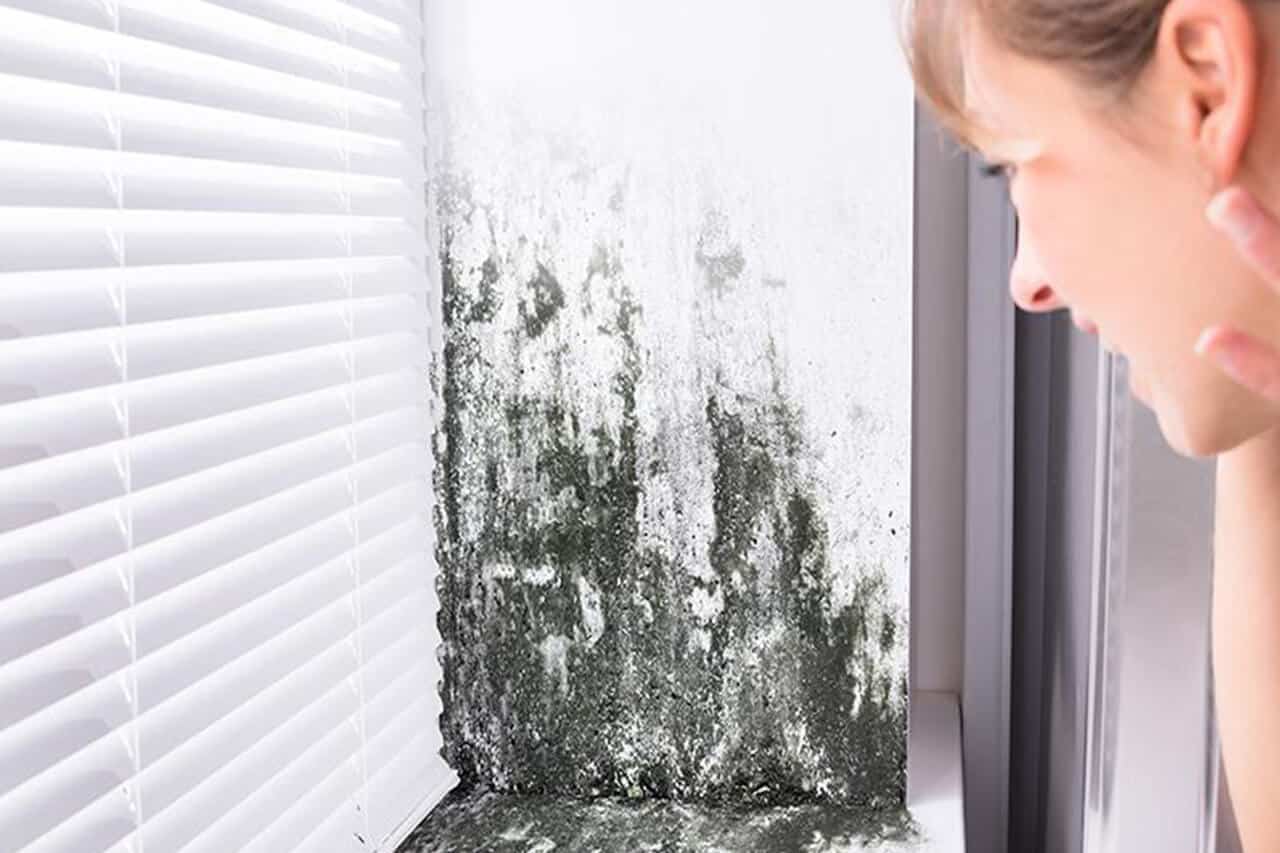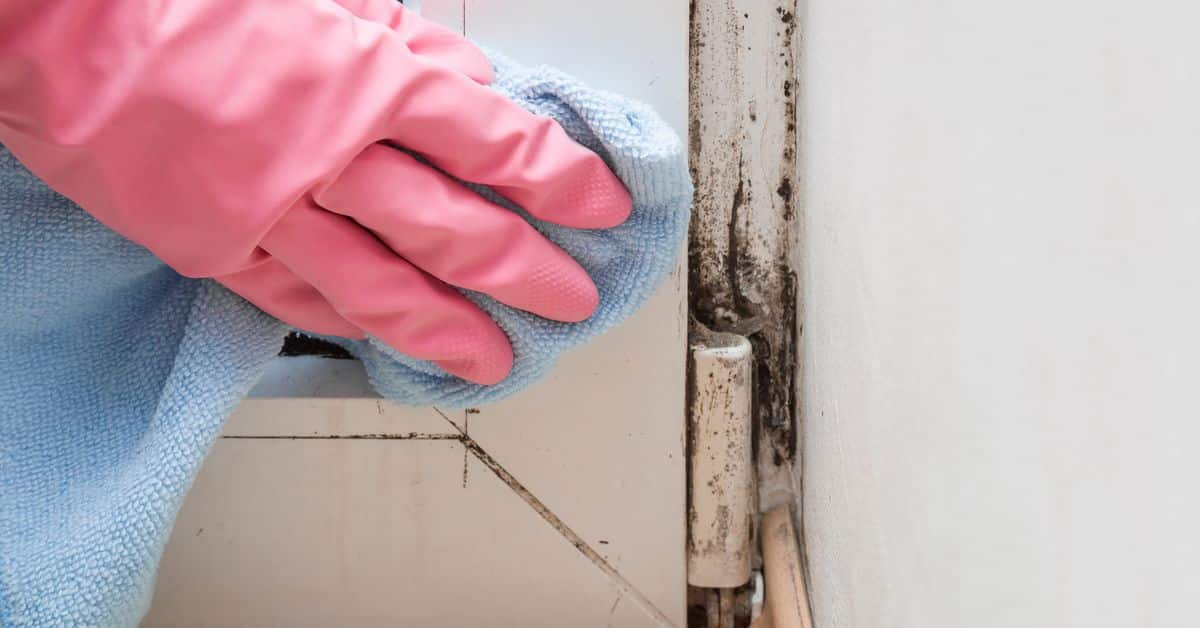Preventing Mold on Windowsills

Mold on windowsills can be a big problem in homes. It is caused by too much wetness. If not fixed, it can spread to other areas.
Mold often starts because of moisture buildup around the windows. This could be from leaks, condensation, or high humidity inside the house. Mold needs damp places to grow, so windowsills provide an ideal spot.
It’s important to deal with mold, immediately before it worsens. Mold can make some people sick, especially those with asthma or breathing issues. Seeing mold on windowsills means there is too much moisture that needs to be controlled.
It’s essential to know what is causing mold growth and make changes to stop it.

Mold on Windowsills? Here’s Why It Happens
Are you noticing unsightly mold starting to grow on your windowsills? Mold on windowsill can eventually lead to indoor air quality issues if not addressed. But what causes mold to form around windows in the first place?
A moist environment must exist for mold to grow on windowsills. These damp conditions stem from a variety of potential moisture sources – both inside and outside your home.
On the interior, high humidity levels allow condensation to form on window surfaces when warm moist air meets cooler window panes. Running exhaust fans during showers, cooking, and other steamy activities helps control excess indoor moisture.
Exterior moisture issues are more difficult to manage. Things like rain, morning dew, and damp soil around foundation walls can create condensation on windows. Older, drafty windows only compound the problem.
If you have recurring mold on your windowsills, it may be time to consider vinyl windows for sale. New vinyl replacement windows with insulating glass panes resist condensation and moisture infiltration far better than aged, leaky window frames and sashes.
Don’t let mold gain a foothold in your home. Upgrade to energy-efficient vinyl windows to eliminate damp conditions where mold thrives.

Causes
Dampness/Moisture Buildup
Mold needs damp and wet conditions to grow and spread quickly. Any lingering moisture or dampness on the window sill creates an ideal environment for mold growth. The sources of this moisture could be water leaks, spills that are not cleaned up properly, or condensation forming on the sill’s surface.
High Indoor Humidity
If the humidity levels inside a room are too high, the humid air allows water vapor to condense on cooler surfaces like window sills. This creates the perfect damp environment for mold to start growing on the windowsill. Mold on windowsills is very common in humid areas like basements and bathrooms.
Poor Ventilation
When there is poor air circulation and lack of proper ventilation, stale air becomes trapped inside, and moisture cannot escape easily. This traps moisture on windows and makes it easier for mold spores to settle and start growing mold colonies on the windowsill.
Temperature Differences
If the indoor air temperature is much warmer than the outdoor air, condensation happens on cold surfaces like window glass and window sills. This forms water droplets that provide the necessary moisture for unsightly mold growth to develop on the windowsill.
Leaks Around Windows
Any cracks or failed seals around windows that allow water to seep in will keep the windowsill wet. If these leaks are not fixed promptly, the windowsill stays damp enough for mold to start forming and continuing to grow on the surface until the leak is repaired.
Lack of Sunlight
Mold on windowsill thrives in dark, humid areas with no exposure to sunlight. Windowsills facing north often stay damp and shaded, making them prone to mold growth as they lack direct sunlight to dry out the moisture.

The Best Window Types to Prevent Mold Growth
If you’ve had issues with mold on windowsills in the past, choosing the right replacement windows can help prevent future mold problems. Let’s look at how different window materials compare:
Wood Windows
While wood windows have a classic look, they require more maintenance to prevent mold. Wood expands/contracts with moisture which can lead to cracking, peeling paint, and failed seals over time. This allows warm indoor air to meet cool surfaces and create condensation – a prime cause of mold.
Aluminum Windows
Aluminum windows avoid issues with moisture absorption since the frames don’t swell or rot. However, aluminum conducts heat and cold easily which can lead to warm internal surfaces sweating, and mold growth. This thermal bridging issue is solved in some higher-end aluminum windows with a thermal break barrier.
Vinyl Windows
Vinyl replacement windows make an excellent choice for preventing mold on windowsills:
- Vinyl frames create an insulating barrier that reduces temperature conduction and condensation buildup.
- The smooth, non-porous vinyl material does not support mold growth like wood can.
- Vinyl windows resist moisture intrusion and mold far better than other window types.
Some tips for vinyl windows to prevent mold include:
- Opt for high-performance insulated vinyl windows
- Ensure proper installation and sealing
- Clean vinyl tracks/sills regularly
With vinyl’s energy efficiency, moisture resistance, and low maintenance, vinyl windows for sale offer an affordable long-term solution against windowsill mold issues.
Tips To Prevent Mold On Window Sills
Find the Moisture Source
- Mold on windowsill needs dampness to grow, so look for water sources
- Check for leaks around window frames from outside
- High indoor humidity can also lead to condensation on sills
Control Indoor Humidity Levels
- Use exhaust fans when cooking, showering, etc. to vent moist air
- Run a dehumidifier, especially in basements
- Ensure proper ventilation in all rooms
Fix Any Window Leaks
- Replace old weatherstripping and caulking around windows
- Repair cracks or failed seals that let rain/moisture in
- Consider replacing very old, drafty windows
Improve Drainage Around the Home
- Make sure soil slopes away from foundation walls
- Clean out clogged gutters/downspouts regularly
- Add window well covers for basement windows
Keep Windowsills Dry
- Wipe up any moisture or condensation on sills promptly
- Use window blinds/shades to allow airflow over sills
- Open windows regularly to allow air circulation
Clean Moldy Windows Using Mold-Killing Products
- Mix bleach solution or get dedicated mold removal sprays
- Scrub away any existing mold growth on sills
- Dry sills completely afterward to prevent return
Say Goodbye To Mold With Window Liquidators
Stop dealing with recurring mold on your windowsills for good. Window Liquidators has the perfect solution – replacement windows and vinyl windows designed to eliminate moisture issues that allow mold growth. Our affordable cost replace windows are the best option for your home.
Don’t settle for windows that enable mold. Order your replacement vinyl windows from Window Liquidators today. Our quality products combined with expert installation will ensure you never have to worry again about unsightly, unhealthy mold on windowsills.
Ending Thoughts
Having mold on windowsills in your home can be a big problem. But there are ways to stop it from happening.
If you have tried different things but still get mold, it may be time for new windows. Vinyl windows for sale are a good choice to prevent mold.
Vinyl windows are made in a special way that stops moisture buildup. This moisture is what lets mold grow on windowsills. Vinyl also does not get moldy itself like wood can.
When buying vinyl windows, follow tips for vinyl windows to work best against mold. Get high-quality ones and make sure they are installed properly with no leaks. Regularly clean the vinyl sills and tracks too.
By controlling humidity, fixing leaks, and having good airflow, plus new vinyl windows, you can avoid getting mold on windowsills in your home. This helps keep your home’s air healthy and clean.
FAQs
Q: What are some tips for vinyl windows to prevent mold on windowsills?
A: Ensure proper installation and sealing, and regularly clean vinyl tracks and sills.
Q: Where can I find vinyl windows for sale to solve my mold issues?
A: Window Liquidators offers quality vinyl replacement windows to eliminate conditions causing mold.
Q: How does mold on windowsill form in the first place?
A: Mold on the window grows when there is excess moisture from leaks, condensation, or high humidity.
Q: Why are vinyl windows for sale a good choice to avoid mold?
A: Vinyl frames reduce condensation buildup, and the non-porous material resists moisture and mold growth.









